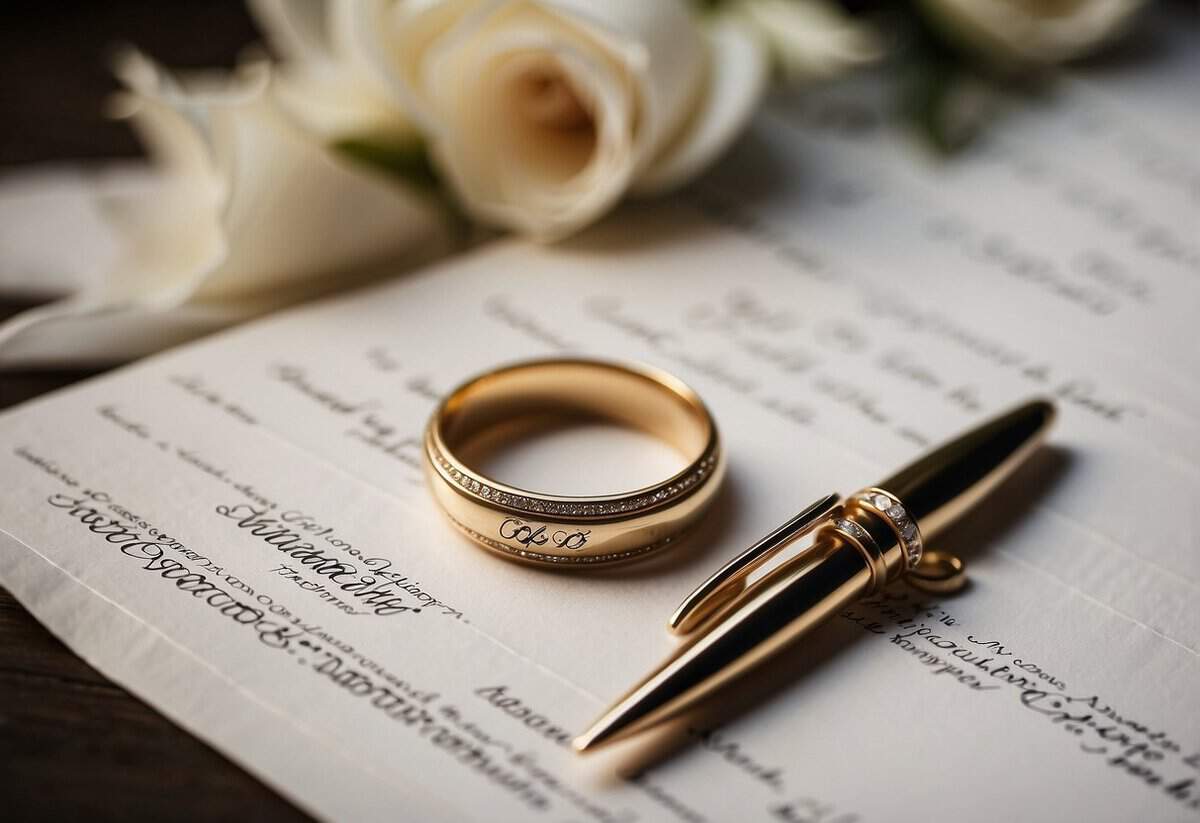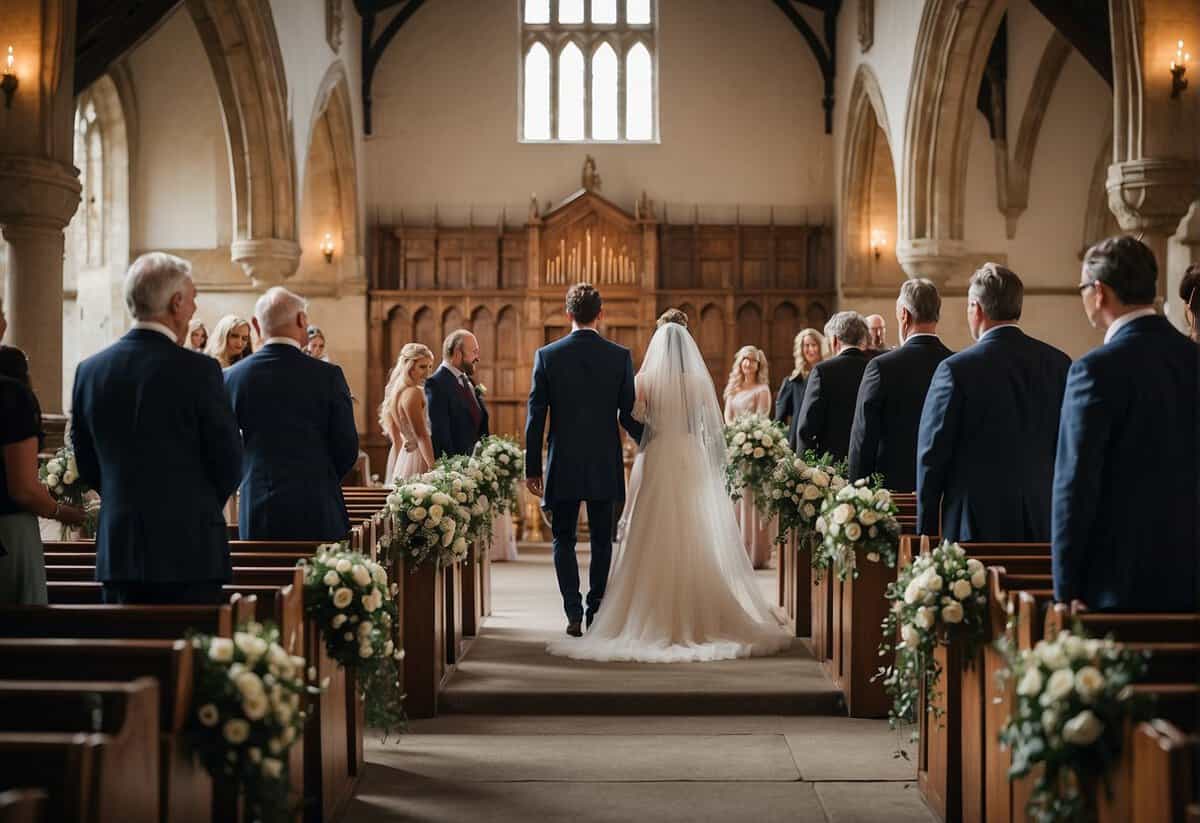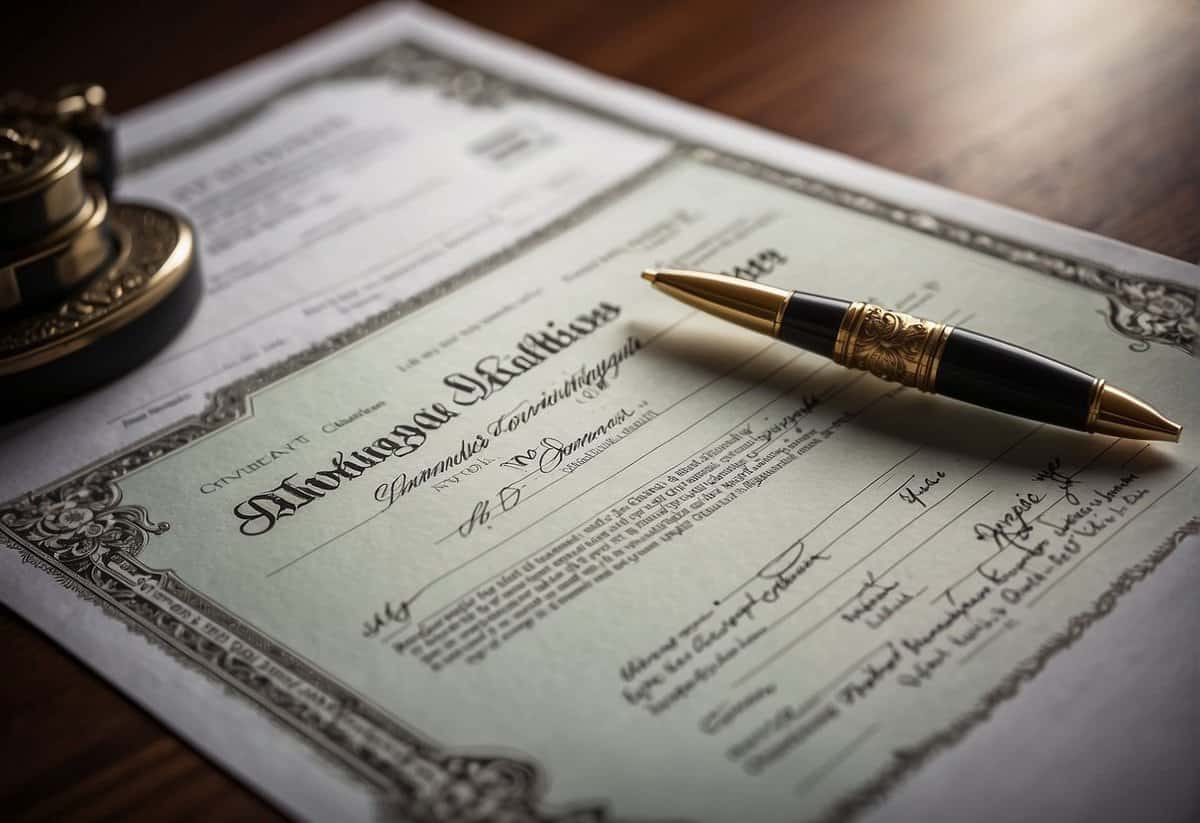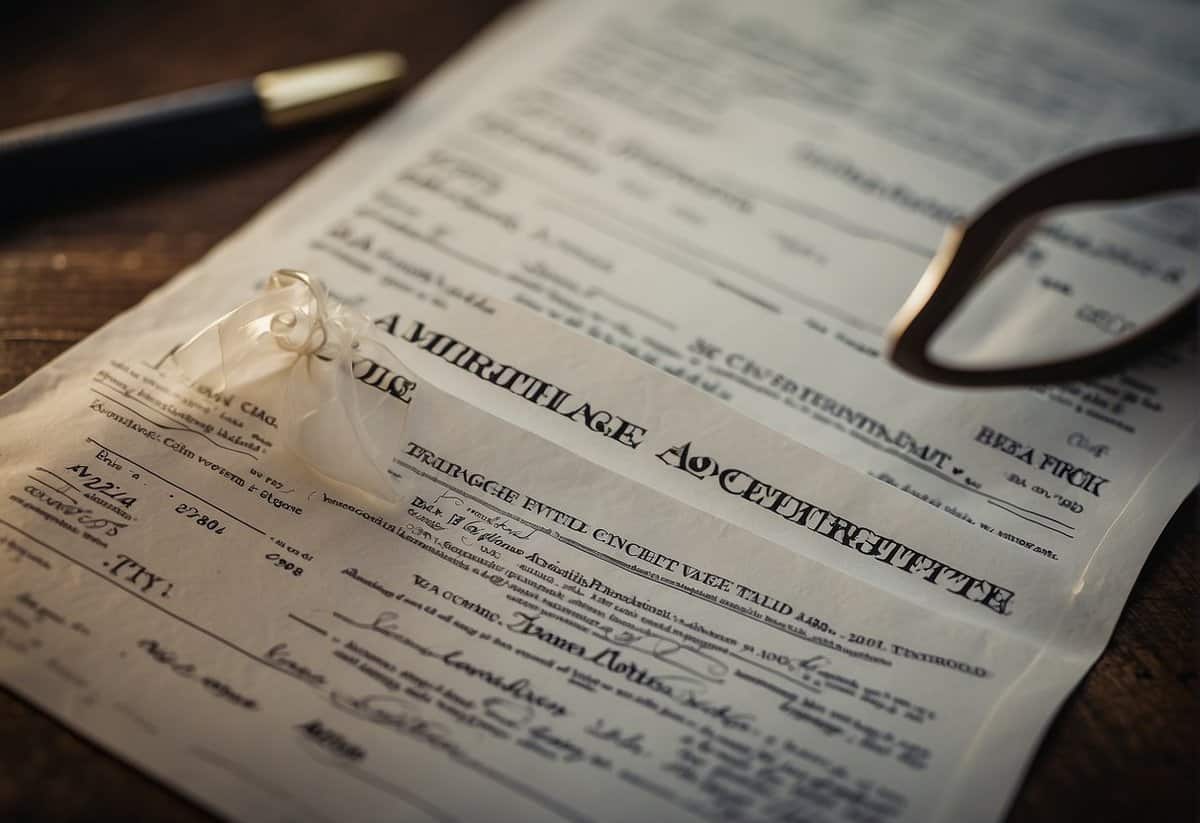Can You Legally Marry Two People in the UK? Understanding Polygamous Laws
In the UK, the legal framework surrounding marriage is clear and restrictive regarding polygamous unions. Under British law, you cannot legally marry two people at the same time. Marriage in the UK is monogamous, meaning if you’re already married and choose to marry someone else, you must first legally end your current marriage. Polygamous marriages, while recognized in some countries, are not legal if contracted within the UK. That said, there are certain conditions under which the UK may recognize a polygamous marriage which has been legally entered into abroad, subject to very specific rules and regulations.

Understanding the legal requirements for marriage in the UK is crucial for anyone looking to tie the knot. There are financial and legal consequences to entering into a marriage, including rights to property, inheritance, tax benefits, and financial responsibility for one another. If you wish to dissolve your marriage, there is a formal legal process that must be adhered to, and this process may vary depending on whether the marriage is monogamous or polygamous.
Key Takeaways
- You cannot legally marry two people at the same time in the UK.
- Marriages in the UK carry significant financial and legal obligations.
- To marry someone else, you must first legally terminate any previous marriage.
Legal Requirements for Marriage in the UK

When you’re planning to get married in the UK, it’s important to understand the legalities involved. Whether you’re in England, Wales, or across the border in Scotland or Northern Ireland, there are specific legal requirements you’ll need to fulfil to ensure your marriage is recognized by law.
Establishing Capacity to Marry
To legally marry in the UK, both parties must be at least 18 years old, or 16 with parental consent in Scotland. You must be single, divorced, or have had a previous marriage annulled to be considered free to marry. This applies whether your ceremony is a civil marriage, a religious marriage, or a civil partnership. Should either of you be a transgender person, a full gender recognition certificate is required to have your acquired gender legally accepted in the marriage.
Obtaining the Marriage Certificate
Before your marriage can take place, you must give notice at the local register office in England and Wales, or the district registrar’s office in Scotland. The notice period allows the local authority time to ensure there are no legal impediments to your marriage. There is a fee associated with giving notice, and additional documentation, such as a valid marriage schedule or a marriage certificate, will need to be obtained before the ceremony. This is essential for the marriage to be legally binding.
Marriage Ceremonies and Venues
Marriage ceremonies can be either a religious or a civil ceremony. Civil ceremonies must take place in a venue registered for marriage by the local authority, such as a register office or a licensed venue. For a religious ceremony, venues may vary from a parish church to any other religious building that is officially registered for marriage. The venue must be approved for marriages specific to your gender – keeping in mind that same-sex weddings are now legally recognized across the UK. In England and Wales, civil partnerships can be converted into a marriage, broadening options for same-sex couples. Remember that in the UK, any form of polygamous marriage is not legally recognized, even if it’s lawful in the country where it was entered into.
Financial and Legal Effects of Marriage

When you get married in the United Kingdom, there are key changes to your financial and legal standing, including how property is managed, your taxation status, and parental responsibilities.
Property and Inheritance Rights
When you marry, your property and inheritance rights are legally altered. Should one spouse pass away without a will, the surviving spouse typically inherits all or a substantial part of the estate. Marriage can also change the status of property ownership, turning personal property into marital assets, which can have consequences for inheritance.
- Joint Tenancy: If you own property together, you become joint tenants, meaning if one of you dies, the other automatically inherits the property.
- Tenancy in Common: Alternatively, you can hold property as tenants in common, allowing you to pass your share to someone else upon your death.
Taxation, Pensions, and Social Security
Marriage affects your taxation, pension rights, and social security benefits.
- Income Tax Benefits: You may be entitled to certain income tax benefits, such as the Marriage Allowance, transferable between spouses and reducing your tax bill.
- Inheritance Tax: There is often no inheritance tax to pay on money or property left to a spouse.
- Pensions: Your spouse can inherit your pension, but the specifics depend on your pension scheme.
Responsibilities Towards Children
Marriage enhances your legal rights and responsibilities toward children, notably in terms of parental responsibility and potential nationality status.
- Parental Responsibility: Marriage grants automatic parental responsibility for both partners, including adoptive and genetic parents.
- Children’s Nationality: As a legal parent, the nationality of your children may be affected by your own, creating a path for them to obtain British nationality.
Ending a Marriage

In the event that your marriage isn’t working out, you have a couple of options under UK law. You can either proceed with divorce and separation, or in certain specific instances, seek an annulment if your marriage was never valid to begin with.
Divorce and Separation Proceedings
Under UK law, particularly the Matrimonial Causes Act 1973, if you decide your marriage should be ended, you will need to go through a divorce. In England and Wales, a divorce is the formal process by which a marriage is legally dissolved. To start a divorce, you must have been married for at least one year and show that the marriage has irretrievably broken down. This breakdown can be attributed to several reasons, including adultery, unreasonable behaviour, and separation for a certain period, among others.
If you’re not ready to divorce or if it’s against your beliefs, you could consider a legal separation, which allows you to live apart without dissolving the marriage. It’s important to understand that you’ll remain legally married during this time. A legal separation could affect your social security benefits and your immigration status if you’re from outside the European Economic Area (EEA).
Annulment of Invalid Marriages
An annulment is a legal procedure that declares a marriage void, as if it never existed, or voidable, meaning it can be declared invalid from the point of annulment. You can get an annulment in cases where the marriage was not legally valid. Reasons could include if one of you was already married or in a civil partnership, if the marriage was not consummated due to an inability of either party, if one of you did not consent, perhaps due to duress or fraud, or if you’re too closely related.
Annulment is also applicable if either of you were underage – under 18 without the necessary permissions from a parent or guardian – or if there wasn’t proper notice of marriage given. Unlike divorce, there is no requirement to have been married for at least one year before you can apply for an annulment. However, if you or your partner were widowed and chose to convert your civil partnership to a marriage, these circumstances don’t automatically make your marriage invalid.
Keep in mind that in the UK, it is an offence to knowingly get married while already married to someone else, a situation known as bigamy, which is closely related to the concept of polygamy, recognised as illegal under UK law.
Frequently Asked Questions

Navigating the laws regarding marriage in the United Kingdom can be complex, especially when it comes to the topic of marrying more than one person. Below, you’ll find straightforward answers to some common queries about the legal stance of the UK on polygamy and marriage to multiple partners.
What are the consequences of engaging in polygamy in the United Kingdom?
In the UK, polygamy is illegal. Engaging in polygamous marriage could lead to legal ramifications, including potential charges of bigamy which is a criminal offense under the Matrimonial Causes Act 1973.
How does UK law address polygamy in the context of religious practices?
UK law does not recognize any marriage with more than one partner as legally valid, regardless of whether the marriage was conducted in accordance with religious practices that may permit polygamy.
Are there any circumstances where having multiple spouses is permissible in the UK?
There are no circumstances under current UK law where marrying multiple spouses is permissible. The legal framework in England, Wales, and Northern Ireland only allows you to be married to one person at a time.
What are UK’s legal provisions regarding marriage to multiple partners concurrently?
The UK’s legal provisions strictly prohibit marriage to multiple partners concurrently. The law is clear in that a person can only be legally married to one spouse at any given time.
In which countries is the practice of polygamy legally recognized?
Polygamy is legally recognized in some countries, mostly in parts of Africa and the Middle East. This cultural acceptance, however, does not carry legal weight in the UK.
What legal status does a throuple have when it comes to marriage in the United Kingdom?
A throuple does not have any legal status in the context of marriage in the United Kingdom. UK marriage laws allow marriage between two individuals only, and any additional partners would not be recognized legally within this bond.

